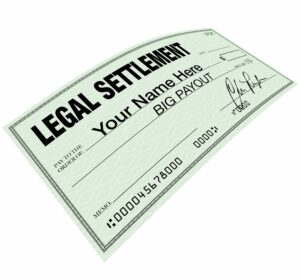
When you’ve been injured due to someone else’s negligence in Texas, one of the primary concerns is how you’ll be compensated for your losses. While you navigate medical treatments and recover from physical and emotional distress, trying to negotiate a settlement can be daunting.
Turning to an experienced personal injury lawyer from Burkett Law Firm makes sense in these situations. Your attorney can help you secure an injury settlement and negotiate to help you get the maximum compensation possible.
However, even if a settlement is awarded, you may wonder how you will receive the money. Here, you can learn more about injury settlement payouts and available options.
Understanding the Basics of Personal Injury Settlements in Texas
Before diving into how payments are made, it is essential to understand the basics of personal injury settlements. These are based on several laws and rules that must be followed.
Comparative Negligence Rule
Under the Texas Civil Practice and Remedies Code § 33.001, the state follows a “modified comparative negligence” system. Your settlement can be reduced if you’re partially responsible for your injury. For instance, if you’re deemed 30% at fault, your potential settlement decreases by that percentage.
Statute of Limitations for Personal Injury Claims
According to the Texas Civil Practice and Remedies Code § 16.003, you have two years from the date of the injury to file a lawsuit. Failing to do so within this timeframe can prevent you from receiving compensation.
Caps on Non-Economic Damages
In Texas, there are caps on non-economic damages in medical malpractice cases. Per the Texas Civil Practice and Remedies Code § 74.301, the limit for non-economic damages against a single healthcare institution is $250,000, and the total amount for all institutions involved cannot exceed $500,000.
Seek Expert Advice
With specific laws governing personal injury settlements in Texas, it’s imperative to consult a knowledgeable personal injury lawyer to navigate the legal landscape and secure a just settlement.
Types of Personal Injury Settlements
Personal injury settlements in Texas can be categorized into two primary types: compensatory and punitive damages.
- Compensatory Damages: These cover tangible and intangible losses. Tangible losses can be medical bills or lost wages, while intangible losses might involve pain and suffering.
- Punitive Damages: These are awarded to punish the negligent party and are less common. Texas law caps punitive damages, typically limiting them to two times the compensatory damages awarded for economic losses plus an equal amount for non-economic losses, up to a maximum of $750,000.
Methods of Payment: Lump Sum vs. Structured Settlement
Once a settlement amount is determined, it can be paid in two ways:
- Lump Sum Payment: As the name suggests, this involves simultaneously receiving the entire injury settlement amount. It provides immediate financial relief, especially useful if there are significant medical bills or if you’ve been out of work.
- Structured Settlement: This involves receiving the settlement in periodic payments over time. While it doesn’t offer immediate relief, it provides a steady income stream, which might benefit long-term financial planning.
Factors Influencing the Payment Method
Several factors can influence whether you receive a lump sum or structured settlement:
- Severity of the Injury: Major injuries might necessitate immediate and significant medical expenses, making a lump sum more appealing.
- Age and Financial Situation: Younger individuals or those with less financial stability might prefer consistent income from a structured settlement.
- Legal Advice: A personal injury lawyer might recommend one payment method over another based on the specifics of your case and Texas laws.
Tax Implications in Texas
Fortunately, under the Internal Revenue Code Section 104(a)(2), personal injury settlements are generally tax-free. This applies to both compensatory and punitive damages. However, exceptions might arise, so it’s crucial to consult with a financial advisor or your personal injury lawyer to understand your situation.
The Role of the Personal Injury Lawyer
A seasoned personal injury lawyer is pivotal in ensuring you receive your settlement in the most advantageous manner. They will:
- Advocate for a fair settlement amount based on your injuries and losses.
- Navigate Texas-specific laws and regulations to maximize your compensation.
- Offer guidance on the most beneficial payment method based on your unique circumstances.
How a Personal Injury Lawyer Can Help with Your Case
Receiving a personal injury settlement in Texas might seem complex, but with the right guidance, it doesn’t have to be. By understanding the nuances of Texas laws and working closely with a competent personal injury lawyer, you can ensure you receive the compensation you deserve in a manner that best suits your needs. If you’ve been injured, prioritize seeking legal counsel to help you navigate the intricacies of your injury settlement.
At the Burkett Law Firm, we can help you with your personal injury claim and ensure you get the compensation you are entitled to. The first step is to contact our office to schedule a free consultation.





